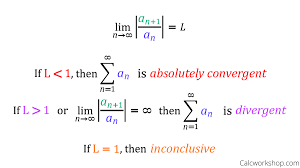Infinite Series
1/42
There's no tags or description
Looks like no tags are added yet.
Name | Mastery | Learn | Test | Matching | Spaced | Call with Kai |
|---|
No analytics yet
Send a link to your students to track their progress
43 Terms
Improper Integral
A definite integral that has either, or both, limits infinite or an integrand that approaches infinity at one or more points; cannot be computed using the normal Riemann integral
Improper Integrals with Infinite Integration Limits
Goal: Create a limit question from the integral. Evaluate the limit after integrating
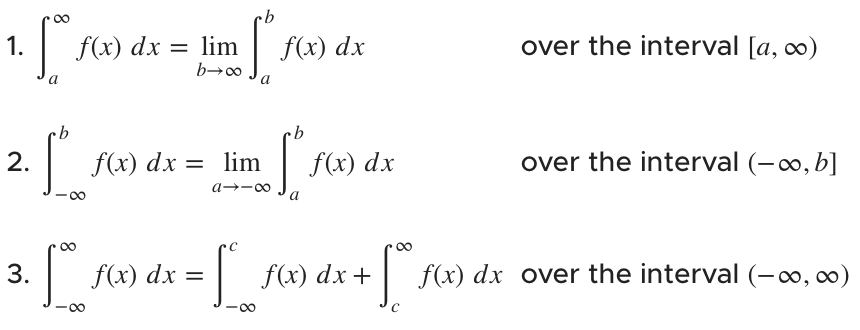
Integrals are considered CONVERGENT if
the limit exists and is a finite number (not positive or negative infinity)
Integrals are considered DIVERGENT if
the limit does not exist or is positive or negative infinity
How do we determine if a Sequence Converges?
A sequence converges when it keeps getting closer and closer to a certain value

Sequences
A succession of objects or events in a specified order. In mathematics, it is used to describe an unending succession of numbers

Series
a sum of the terms of a sequence

Arithmetic Sequences
Special type of Sequence
Follows a pattern of adding a fixed amount(common difference) from one term to the next
Common Difference (d)
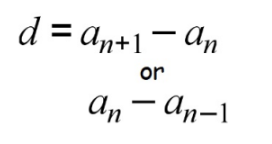
Explicit Arithmetic Sequence Formula

Recursive Arithmetic Sequence Formula
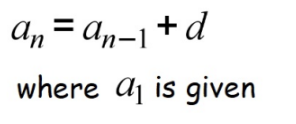
Geometric Sequences
Special Type of Sequence
Follows a pattern of multiplying by a fixed amount (common ratio) that’s not zero from one term to the next
common ratio r

Explicit Geometric Sequence Formula

Recursive Geometric Sequence Formula
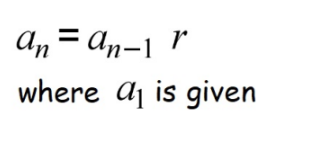
Sigma Notation

A Sequence is represented by..
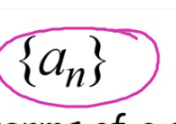
Finite Series

Infinite Sum

Infinite Series

Limit of the Sequence
what to use to determine if a sequence converges or diverges, if the sequence has a limit, it converges to that value. If not, the sequence diverges
Power Series
A polynomial with an infinite # of terms
General Form of Power Series when centered at x = 0

General Form of Power Series when centered at x=a (horizontal shift)

Taylor Polynomial
an expansion of a function into an infinite sum of terms, with increasing exponents of a variable like x, x²,.. and usually centered about an x value (x=a)

Maclaurin Polynomial
A special type of Taylor Polynomial where a=0
Taylor Series
Representation of Taylor Polynomial using Sigma Notation

Maclaurin Series
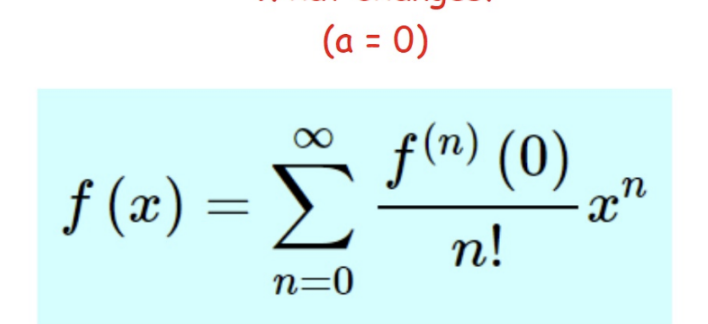
Two Key Questions about infinte series
Does the series converge?
If so, what is the limit? (In many cases we can’t answer this question)
First requirement of convergence of a infinite series
The individual terms must approach zero (they need to get smaller otherwise the sum will be infinitely large)
nth term test for divergence
Only tells if a series diverges not if it converges

Partial Sums Method
What helps us prove convergence since looking at the limit of the individual terms of a Series can only tell us if it diverges
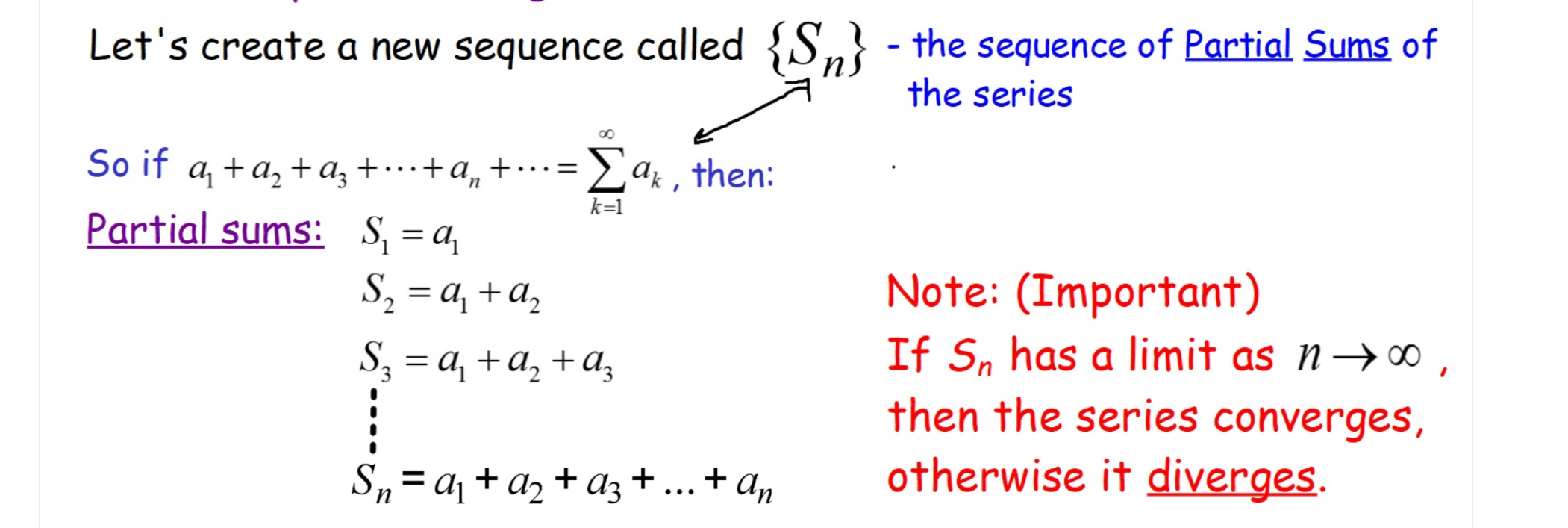
Infinite Geometric Series

Partial sum of a geometric series

Geometric Series Test

P-Series Test

Harmonic Series

Difference between a p-series and a Geometric Series
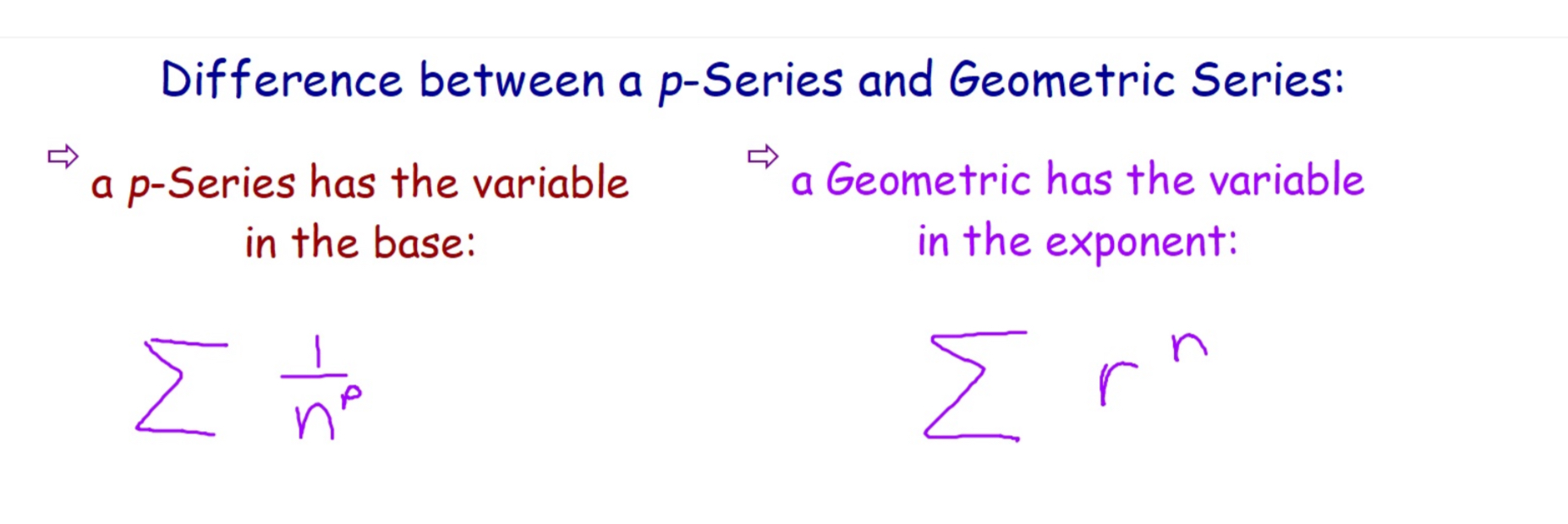
Integral Test

Steps of Integral Test
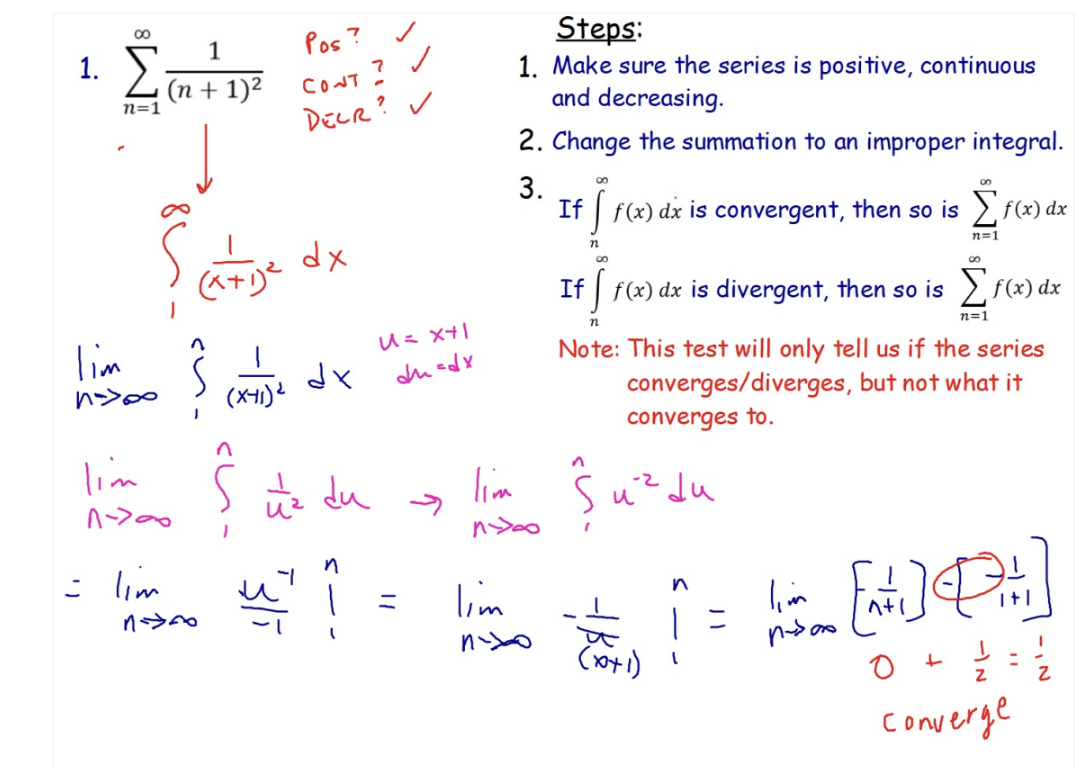
Direct Comparison Test
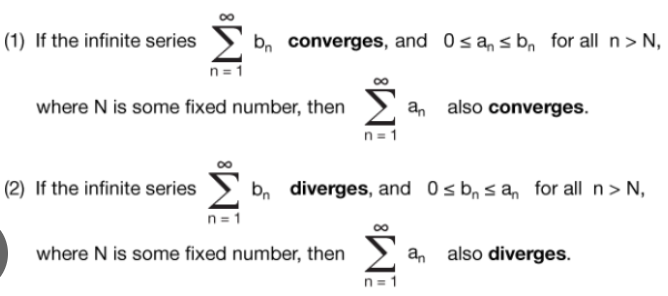
Limit Comparison Test

Ratio Test
